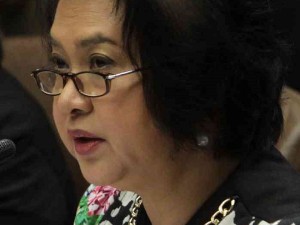A Philippine program that extols whistle-blowers and gives citizens a role in promoting a transparent government has caught the attention of a global transparency group.
The Citizen Participatory Audit (CPA) Project has made it to the short list of the British-led Bright Spots prize, an award that recognizes “the most inspiring examples of how open and accountable government is changing people’s lives,” said the Embassy of the United Kingdom in Manila.
Led by the Commission on Audit (COA), the CPA Project is vying for the top prize with transparency advocacy programs in six other countries— Chile, Estonia, Georgia, Indonesia, Montenegro and Romania.
The Bright Spots prize is an annual award given by the Open Government Partnership (OGP), a multilateral initiative launched in 2011 “to secure concrete commitments from governments to promote transparency, fight corruption, and harness new technologies to strengthen governance.”
The United Kingdom, currently lead cochair of the OGP, and the Philippines are among eight founding states of the initiative, along with Brazil, Indonesia, Mexico, Norway, South Africa and the United States. Some 60 countries are participating in the partnership.
Pleasant surprise
COA chair Grace Pulido-Tan on Sunday said the inclusion of her agency’s CPA Project among the seven short-list nominees was a “pleasant surprise.”
“I don’t know how we got into the short list and who nominated us but whatever it is, it’s good news for all of us,” Tan told the Inquirer.
In a statement, British Ambassador-designate to the Philippines Asif Ahmad said: “The nominated project from the Philippines, the Citizen Participatory Audit, supports the principles of the Open Government Partnership. I hope that these ‘bright spots’ will inspire governments to take action and gain even more momentum for the global transparency movement.”
He said the Philippine government “is currently dealing with such challenges and this is one example of commitment to greater transparency.”
Launched in November 2012, the CPA Project encourages the public—civil society, the private sector and the academe—to support state audit programs “to make government more effective, transparent and accountable,” said the CPA website (https://www.i-kwenta.com/
audit-101/the-citizen-participatory-audit/).
Truth-telling
Under the program, citizens may provide support in “whistle-blowing and truth-telling” by reporting potential cases for investigation and audit, providing feedback on the performance of government offices, and relaying concerns and suggestions from external parties.
Information given by whistle-blowers in the alleged P10-billion pork barrel scam has led to the filing of plunder and other charges against three senators, businesswoman Janet Lim-Napoles and 34 others in the Office of the Ombudsman, according to the CPA.
Civil society groups and other people’s organizations may also establish “integrity circles” to serve as resource persons in governance-related consultations.
Groups may also conduct independent budget analyses, develop performance indicators, design data-gathering methods like questionnaires, and conduct high-quality research.
4 pilot audits
The CPA has four pilot audits in progress, covering public works, welfare, environment and education, the UK Embassy said.
Short-listed projects from the other countries seek to tap citizen involvement in demanding government transparency.
These include Chile’s one-stop shop for public services, Estonia’s Web-based People’s Assembly where citizens may post anticorruption proposals, Georgia’s initiative to enhance its freedom of information law, Indonesia’s social media-based platform for reporting complaints on public services, Montenegro’s mobile app for reporting bad governance practices, and Romania’s program to curb corruption in recruiting civil servants.
At the OGP summit in London on Oct. 31 and Nov. 1, participants will be able to vote for one of the short-listed projects. The winning project, the “Bright Spot,” will be announced at the summit’s final plenary session.
The OGP summit is expected to gather top officials from OGP participating countries and representatives from international bodies and civil society organizations.
Tan said she would send Audit Commissioner Heidi Mendoza to the London summit to make a presentation.
Honor, pressure
Tan said the nomination had given the COA a lot of honor and pressure.
She thanked whoever nominated the Philippines and surmised the nomination could have come either from the World Bank or the Asian Development Bank.
Nevertheless, the gesture was a recognition by the international community of the efforts of the COA to curb corruption in the system, she said.
Tan recalled having been invited by the World Bank to speak on the subject on three different occasions in Nepal, Estonia and Tanzania.
She failed to attend the Nepal event in May this year, she said, as she was in New York at that time. However, the organizers of the conference hooked her up in a video conference to address the participants.—Reports from Tarra Quismundo and Cynthia D. Balana


